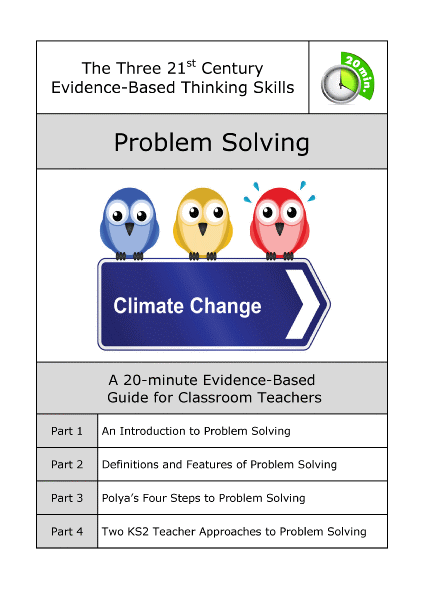A Teacher’s Guide to Problem Solving: An evidence-based time-saving, high-impact tool for essential skill development
This resource is a concise, 20-minute evidence-based guide designed to help classroom teachers effectively teach problem-solving skills, emphasising their importance for 21st-century learners. It includes:
- Introduction to Problem Solving: Outlines the significance of problem-solving as a key skill for the future, particularly in adapting to challenges posed by rapid social and technological changes.
- Definitions and Features of Problem Solving: Provides clear definitions and discusses essential components, such as goals and barriers, associated with solving complex problems.
- Polya’s Four Steps to Problem Solving: Introduces George Polya’s structured method for problem-solving, which includes understanding the problem, devising a plan, implementing the plan, and reflecting on the solution. This approach helps pupils systematically tackle both mathematical and real-life challenges.
- Teacher Approaches to Problem Solving at KS2: Features practical strategies from educators, showing how Polya’s method has been used to build problem-solving confidence and adaptability among pupils.
Overall, this guide supports teachers in preparing pupils to face modern-day problems, encouraging them to apply critical and creative thinking skills to non-routine tasks.
[edd_social_discount]
